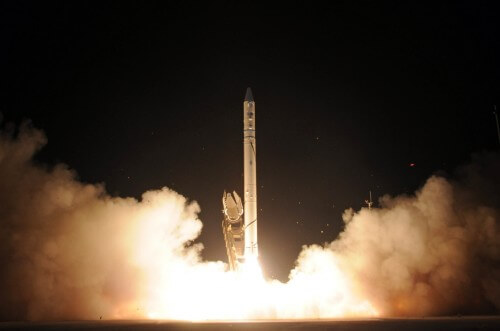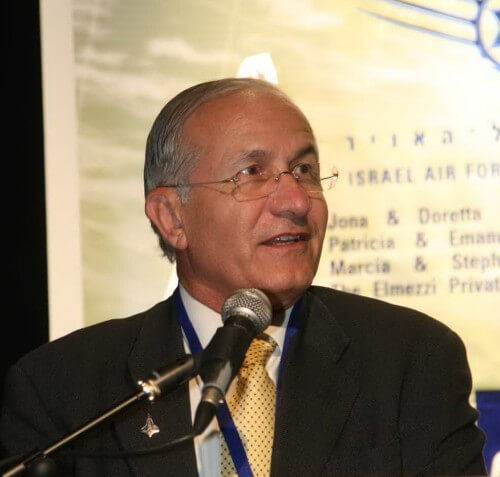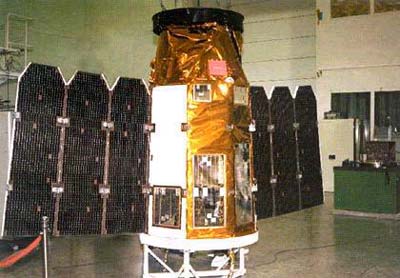Excerpt from the bookThe weapon wizards” by Yaakov Katz and Amir Bohbot – From Chapter 4 "Insolence and Satellites"

On June 7, 1981, eight F-16s took off from an airport in Sinai and flew to Iraq, where they successfully bombed the Osirak nuclear reactor [Ilan Ramon, the first and last Israeli astronaut, was one of the pilots who participated in the operation]. The attack surprised the world. Although Israel's concerns regarding Iraq's nuclear program were well known, no one imagined that Israel had the operational capability to launch a long-range strike - into Iraq and back.
The Israeli planes flew through Saudi and Jordanian airspace on their way to the Iraqi reactor. At one point, when they were flying over the Gulf of Aqaba, they were noticed by the Jordanian King Hussein when he was there in his yacht. He noticed the Israeli markings on the planes and ordered his army to immediately send a warning to Iraq. But the warning never came, and the air force planes slipped into Iraq without being noticed.
The world was stunned, and condemnations were not long in coming, including condemnation from the White House. The Huff 16 planes that were used in the attack arrived in Israel not long ago. The planes were first sold to Iran, but after the Islamic revolution in 1979, the United States offered them to Israel.
Under pressure to impose sanctions on Israel, President Ronald Reagan suspended the transfer of additional fighter jets to Israel, and the CIA expelled the Israeli intelligence analysts from Langley. The United States also launched an investigation to determine how Israel obtained the vital targeting information, even after its request for satellite imagery was denied. CIA Deputy Director Bobby Einman ordered an immediate review of all the photos that Israel had requested and that had been provided to it in the previous six months. While under Casey's policy, Israel was supposed to receive images of potentially direct threats, Einman found that it actually received images of areas not only in Iraq, but also in Libya, Pakistan and other countries far from the Jewish state.
The enraged Einman established a new series of standards, which limited the transfer of photographs to Israel only to areas within a radius of about 1,000 kilometers from the country's borders. Requests for photographs of more distant targets would still be allowed, but under the new guidelines, the CIA director himself would have to approve them on a case-by-case basis.
Defense Minister Ariel Sharon's protests at the time, in the ears of Defense Minister Kasper Weinberger, were of no use, and Einman's new restrictions remained in place.

In Israel, Haim Ashad completed the feasibility study and came to the conclusion that Israel has all the technology and technical knowledge necessary to build its own satellite. With the activation of the CIA's new restrictions on the transfer of satellite images to Israel, officials who initially opposed Ashad's plan began to change their minds. Even they understood that Israel needed an independent capacity. Dependence on the United States undermined Israel's national security.
"If you feed on other people's crumbs according to their whims, it's very uncomfortable and very difficult," explained Meir Amit, former head of AMN and the Mossad. "If you have your own independent ability, you climb one step higher."
The controversial attack in Iraq brought back to the table in the United States Israel's request for direct access to the satellite. Those in favor of the request argued that if Israel had access to the satellite, it might have avoided the attack on the reactor in Iraq, because then there was no better means of understanding what really happened at the nuclear site. Those opposed to complying with the request warned that access to the satellite would give Israel the ability to plan additional attacks throughout the region. Opponents also feared that if the United States granted Israel access to its satellites, the Soviets would do so for the Arabs.
A few weeks after the successful attack on the Iraqi reactor, Prime Minister Menachem Begin called a meeting to discuss the matter of the satellite. Begin was supposed to approve the plan and allocate the necessary budget for it, or bury the Israeli satellite dream forever.
It was a bet, that Guy had previously met with Begin. As chief of security, he was responsible for Israeli intelligence assessments, and often met privately with the prime minister. In one of these meetings Sagi brought up the idea of the satellite. Begin listened but sounded a warning. First, he made sure that Israel would fail, that the world would find out and that Israel's image of deterrence would be destroyed. Second, he made sure that the world saw the Israeli satellite as a threat or excessive power to the small Jewish state. "Make do with what you have," Begin said to Sagi at the same time.
When they entered the meeting, Sagi and Ashad knew that this was their chance. At the very least, they believed that the fate of the project was in the best of hands and knew that if there was an Israeli leader who could understand the strategic importance of developing an independent satellite capability, Begin was the man.

During his entire career as an underground fighter and as a politician, the Holocaust cast a huge shadow on Begin. It is often cited as the main motivation that brought him to Camp David in 1978 to negotiate a peace agreement with Egypt. In serious discussions that preceded the bombing of the Iraqi reactor in 1981, Bagim often dismissed criticism of the operation by saying: "I will not be the man during whose time a second holocaust occurs." Later he said that when the Haf 16 planes were in the air and on their way to their destination, his thoughts wandered to the Holocaust and his parents.
At the meeting, Ashad presented the idea of the satellite, and Sghii expressed his support, while giving backing that Israel can no longer rely on allies like the United States, but needs independence. From there on it was a battle for survival. Other participants in the discussion, such as Chief of Staff Rafael Eitan, expressed doubts, claiming that an Israeli satellite program would become a horrendous waste of resources and time, of which the army does not have an excess anyway. Other officers tried to convince Begin to invest in the development of a guided cruise missile instead of spending money on a satellite launcher.
But Begin was curious. While refraining from going into details - technology was certainly not his forte - the prime minister asked a few questions to ensure that the satellites would play a crucial role in Israel's defense and that they would not be used for purely commercial purposes. Begin liked what he heard: an independent Israeli satellite capability matched his overall belief that, less than 40 years after the Holocaust, Israel could not leave its fate in the hands of others.
The same ideology made him approve the attack on the Iraqi reactor, despite the fierce opposition from the United States and Europe. If the Holocaust taught Begin anything, it is that Jews must never trust anyone else, even their good friends, when it comes to something as basic as ensuring their survival. "This will be the realization of the Jewish genius, which has the ability to do wonderful things," Begin told Ashad. "go".
Ashad stood up and left the room, and Begin and the other participants moved on to discuss other issues on the agenda. They could not have known at the time how great the step they had taken was and how much it would contribute to securing Israel's future as a military superpower.
See more on the subject on the science website:
- Blue and white in space A - about the beginning of the space industry in Israel
- Blue and white in space B - a small space agency and a large industry
- Blue and white in space C - key individuals in the Israeli space program and trends for the future
- 20 years since the launch of Ofek 3 - the first military photography satellite that amazed even its developers with its performance
- The era of tiny satellites / Prof. Haim Ashad
- "Israel can and should be a world leader in tiny and low internet communication satellites"

One response
Today, our strongest weapon is the distorted values of the political and security elite that have a good chance of bringing about another holocaust or another exile